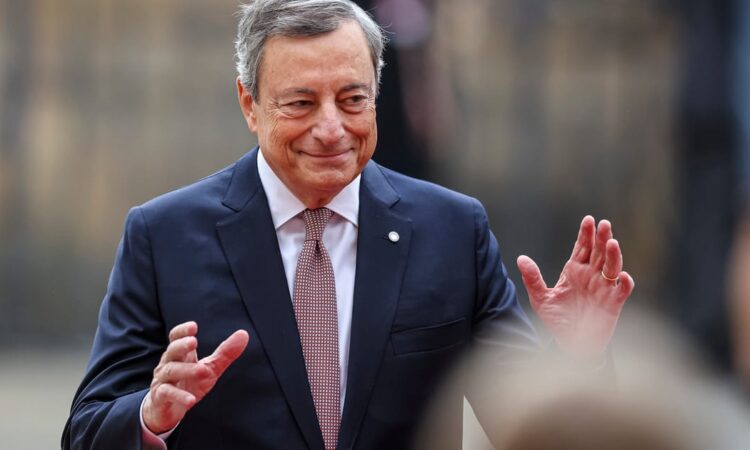
All the participants appeared to agree on what needs to change to boost EU competitiveness, from lowering energy prices to reducing regulatory burdens, but divisions emerged when talking about public money.
“They made clear that a lot of discussions would be needed in the months to come,” the Draghi aide said, adding that Draghi called for “bold action” on the matter of investments.
Draghi stressed the necessity to channel European private savings, because “public money will never be enough,” but he also put on the table options to find funds at the EU level, according to the aide.
The EU could create a new common cash facility, such as debt or loans, or use private partnerships where the European Investment Bank would have a role to play. French President Emmanuel Macron and others support the idea of new common debt.
EU Commissioner Paolo Gentiloni has pitched many times the idea of a sort of second Next Generation EU fund, but the proposal has not generated enthusiasm among all countries.
Asked about the need for new common funds earlier this month, Germany’s Economy Secretary Sven Giegold told POLITICO: “It’s well known” that the German government is in favor of “increasing the spending path into research and development, climate, innovation and so on, which is certainly needed in global competition. But as you know, at the moment, about 70 percent of the EU budget does not go into these future-oriented sectors.”






